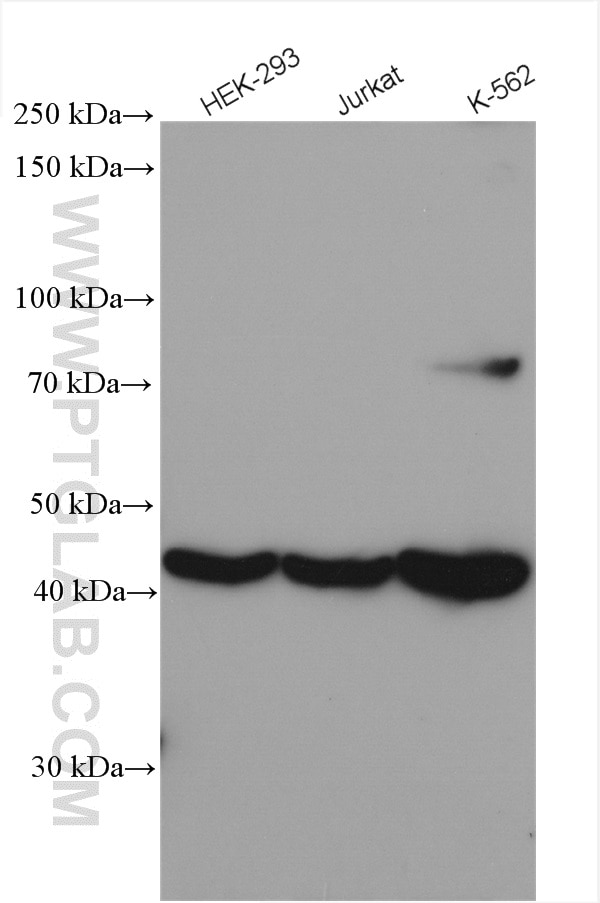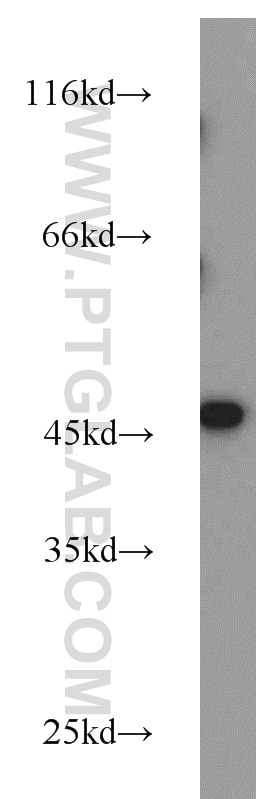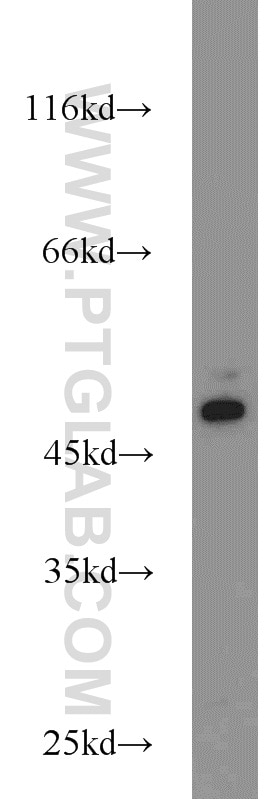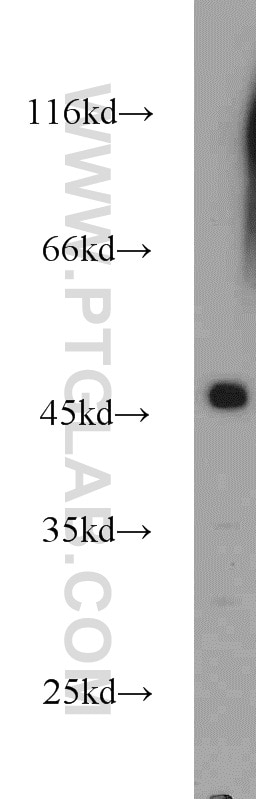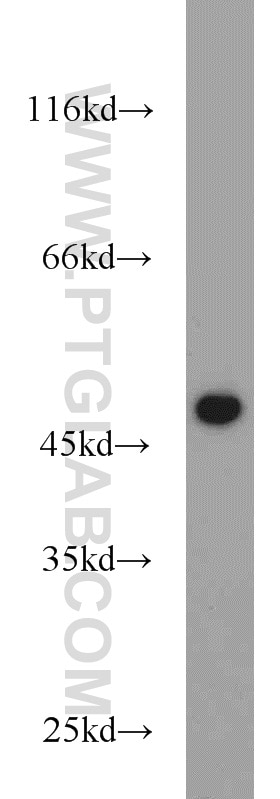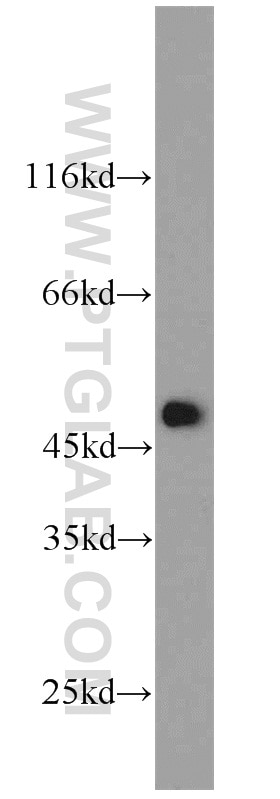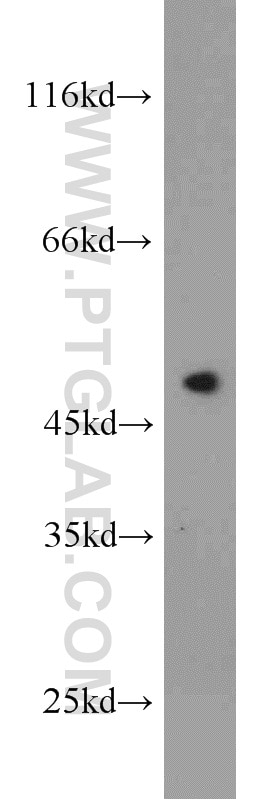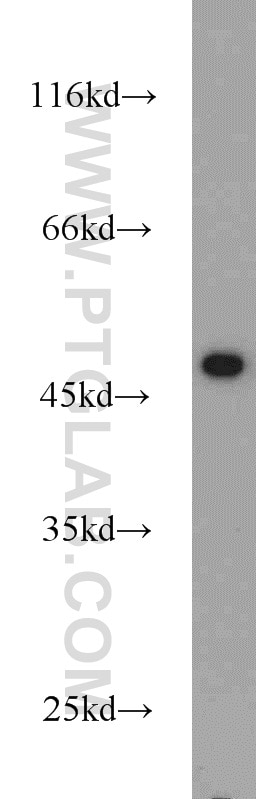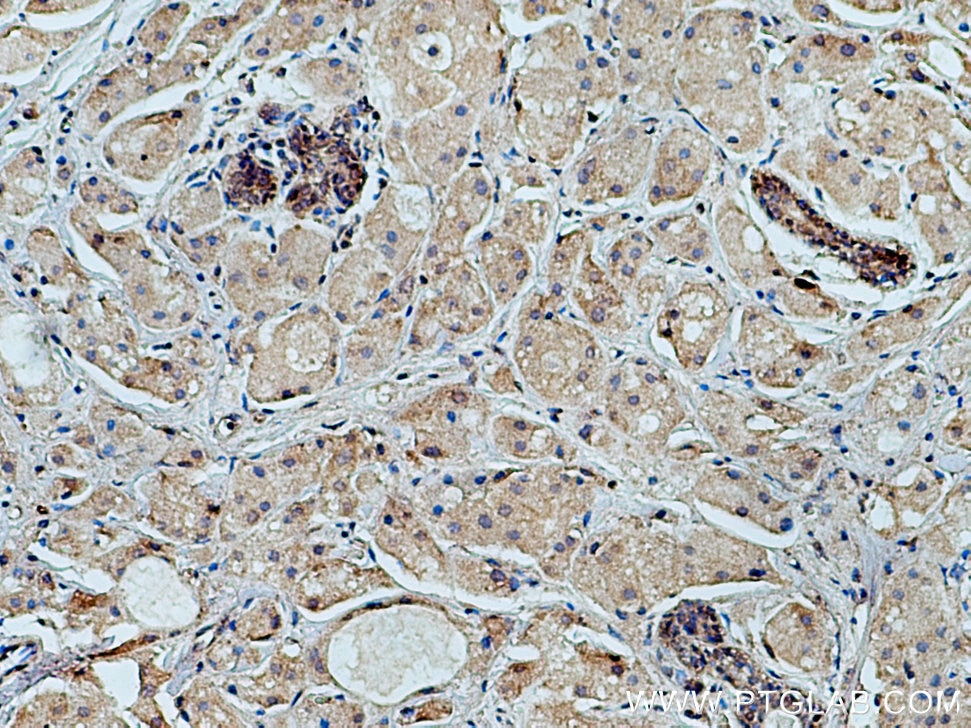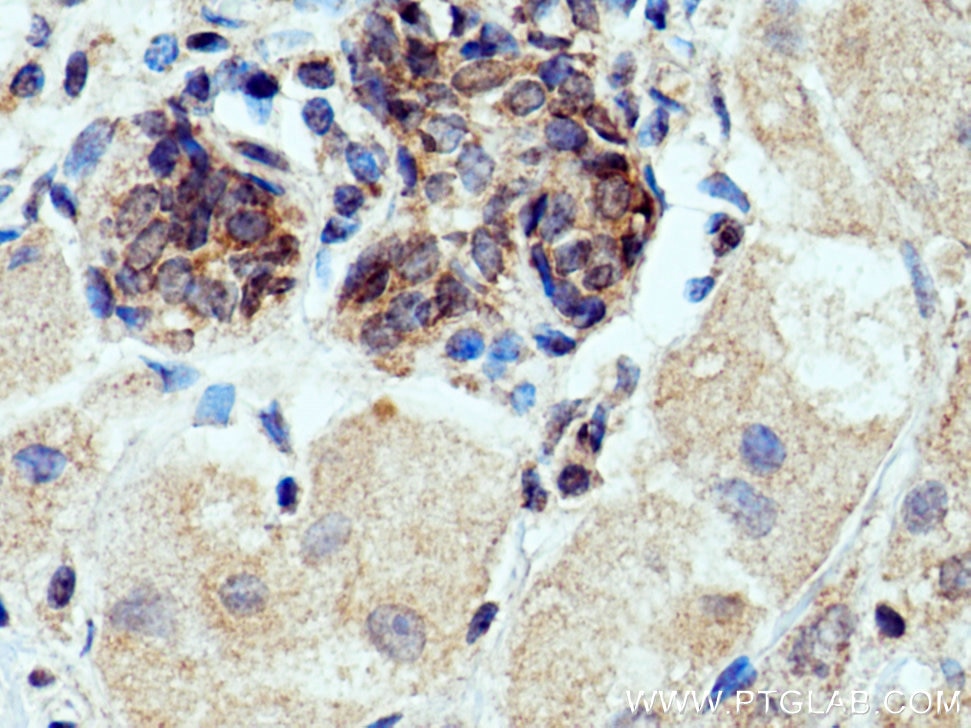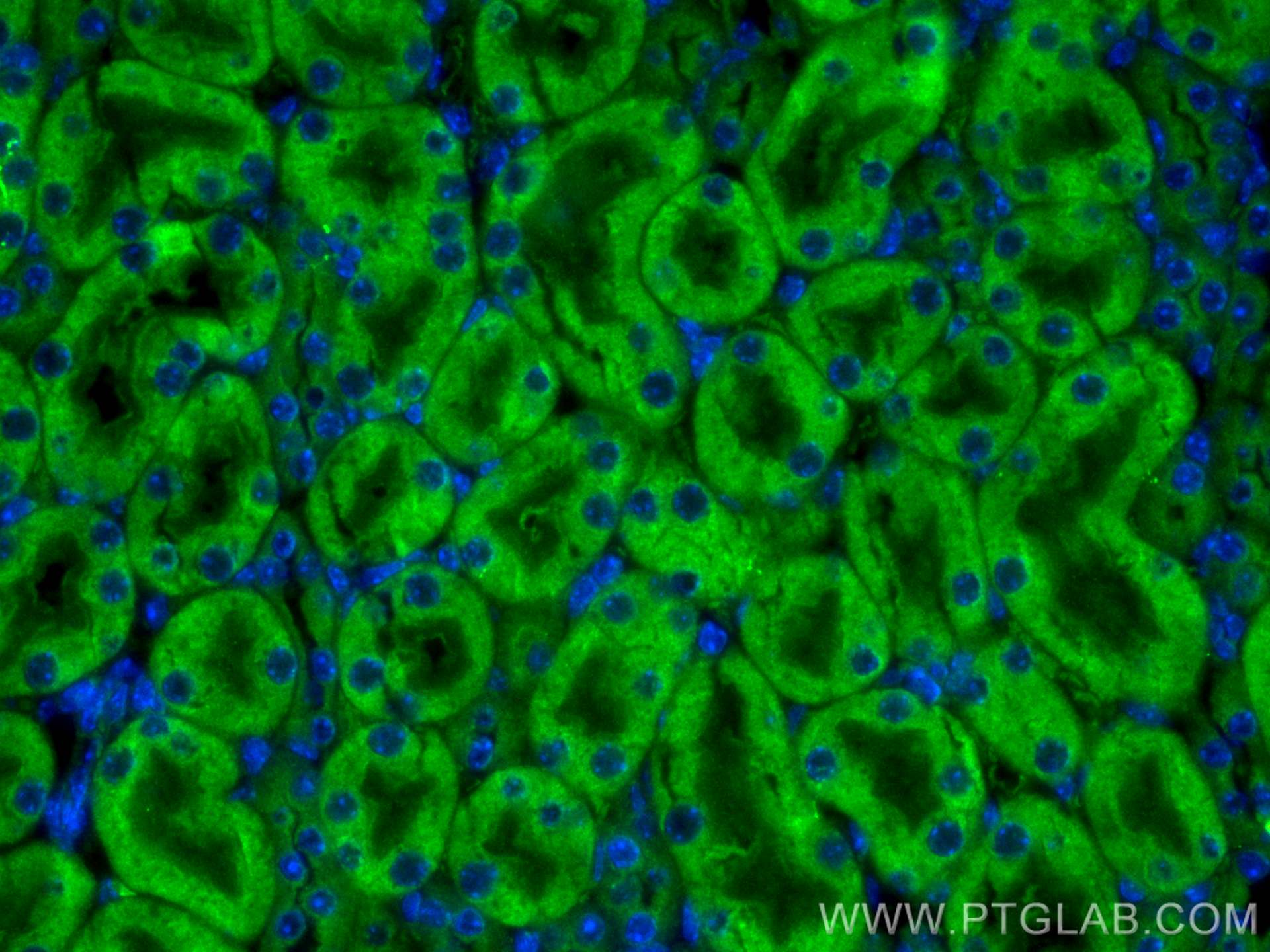Anticorps Polyclonal de lapin anti-FCHSD1
FCHSD1 Polyclonal Antibody for WB, IF, IHC, ELISA
Hôte / Isotype
Lapin / IgG
Réactivité testée
Humain, souris
Applications
WB, IHC, IF-P, ELISA
Conjugaison
Non conjugué
N° de cat : 23362-1-AP
Synonymes
Galerie de données de validation
Applications testées
| Résultats positifs en WB | cellules HEK-293, cellules HeLa, cellules Jurkat, cellules K-562 |
| Résultats positifs en IHC | tissu de cancer du sein humain, il est suggéré de démasquer l'antigène avec un tampon de TE buffer pH 9.0; (*) À défaut, 'le démasquage de l'antigène peut être 'effectué avec un tampon citrate pH 6,0. |
| Résultats positifs en IF-P | tissu rénal de souris, |
Dilution recommandée
| Application | Dilution |
|---|---|
| Western Blot (WB) | WB : 1:500-1:2000 |
| Immunohistochimie (IHC) | IHC : 1:50-1:500 |
| Immunofluorescence (IF)-P | IF-P : 1:50-1:500 |
| It is recommended that this reagent should be titrated in each testing system to obtain optimal results. | |
| Sample-dependent, check data in validation data gallery | |
Applications publiées
| WB | See 1 publications below |
Informations sur le produit
23362-1-AP cible FCHSD1 dans les applications de WB, IHC, IF-P, ELISA et montre une réactivité avec des échantillons Humain, souris
| Réactivité | Humain, souris |
| Réactivité citée | souris |
| Hôte / Isotype | Lapin / IgG |
| Clonalité | Polyclonal |
| Type | Anticorps |
| Immunogène | FCHSD1 Protéine recombinante Ag19963 |
| Nom complet | FCH and double SH3 domains 1 |
| Masse moléculaire calculée | 690 aa, 77 kDa |
| Poids moléculaire observé | 46-50 kDa |
| Numéro d’acquisition GenBank | BC047016 |
| Symbole du gène | FCHSD1 |
| Identification du gène (NCBI) | 89848 |
| Conjugaison | Non conjugué |
| Forme | Liquide |
| Méthode de purification | Purification par affinité contre l'antigène |
| Tampon de stockage | PBS avec azoture de sodium à 0,02 % et glycérol à 50 % pH 7,3 |
| Conditions de stockage | Stocker à -20°C. Stable pendant un an après l'expédition. L'aliquotage n'est pas nécessaire pour le stockage à -20oC Les 20ul contiennent 0,1% de BSA. |
Informations générales
FCHSD1 (FCH and double SH3 domains 1), also known as NWK2, is a member of the F-BAR family, which is involved in endocytosis and vesicle trafficking. FCHSD1 is expressed in mouse cochlear sensory hair cells and plays an important role in regulating the assembly or maintenance of F-actin in hair cell stereocilia and cuticular plate (PMID: 23437151). FCHSD1 also plays a role in stress response sensing and oxidative stress integration and is involved in the pathogenesis of emphysema (PMID: 34168078). FCHSD1 has three isoforms with molecular weights of 77 kDa, 46 kDa, and 40 kDa.
Protocole
| Product Specific Protocols | |
|---|---|
| WB protocol for FCHSD1 antibody 23362-1-AP | Download protocol |
| IHC protocol for FCHSD1 antibody 23362-1-AP | Download protocol |
| IF protocol for FCHSD1 antibody 23362-1-AP | Download protocol |
| Standard Protocols | |
|---|---|
| Click here to view our Standard Protocols |
Publications
| Species | Application | Title |
|---|---|---|
Proc Natl Acad Sci U S A Loss of FCHSD1 leads to amelioration of chronic obstructive pulmonary disease. |
